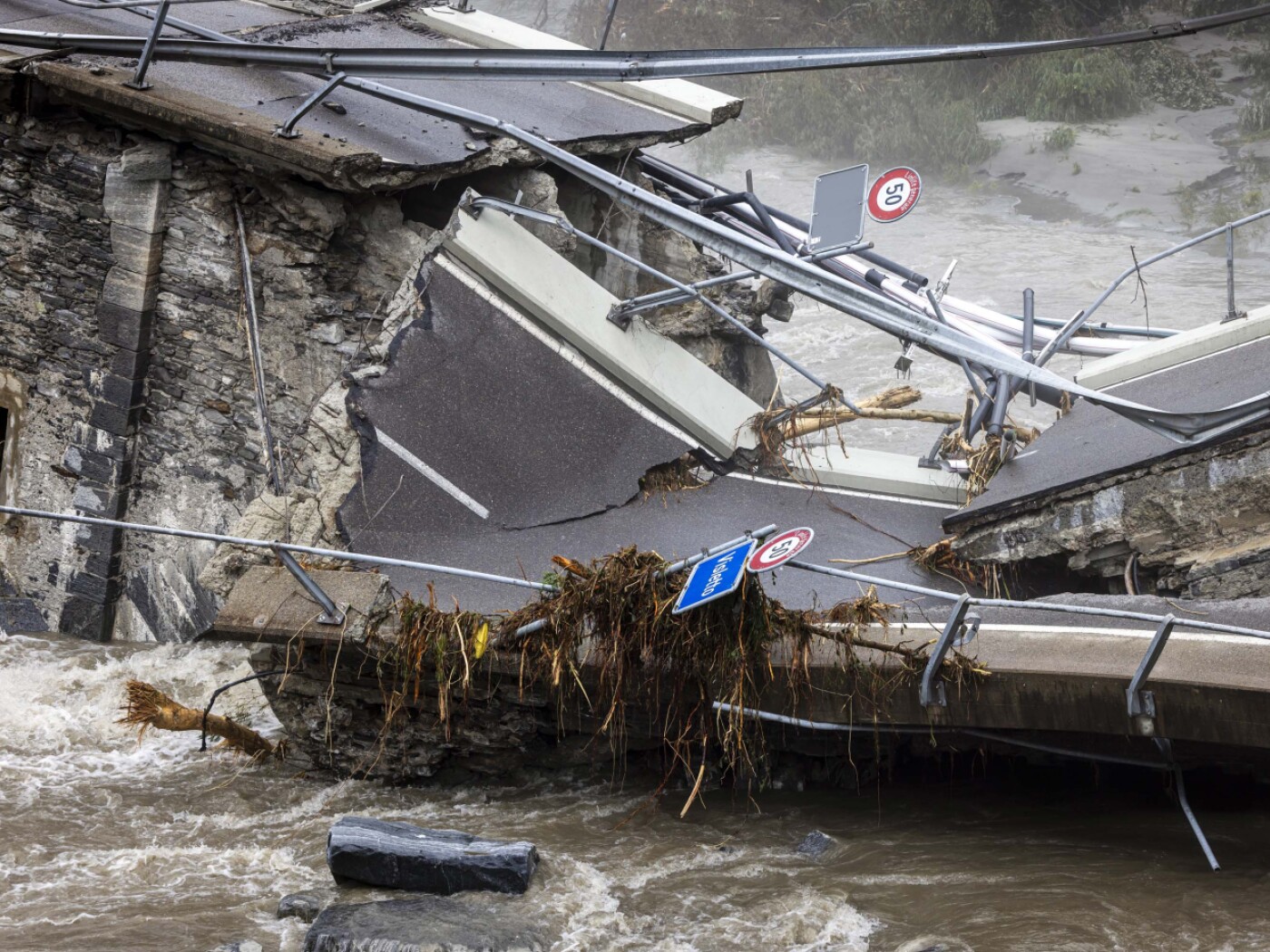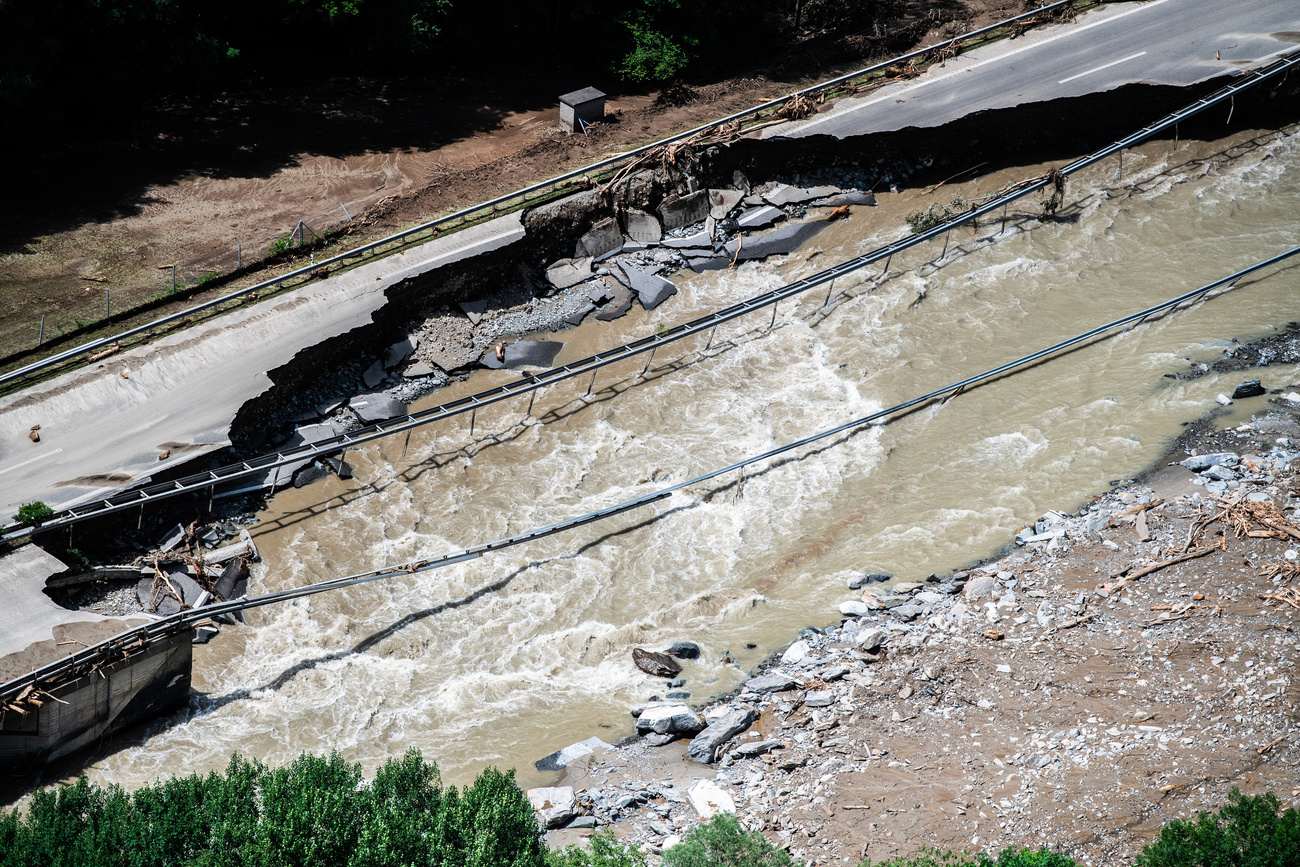
Swiss cantons handed extra funds to repair weather damage

The Swiss government intends to allocate more funds to the cantons that suffered severe weather damage in the summer of 2024, including Ticino.
+ Get the most important news from Switzerland in your inbox
The Federal Department of the Environment, Transport, Energy and Communications (DETEC) has been instructed to draw up a dispatch to parliament on extraordinary federal aid.
+ How to protect people and homes from Swiss landslides
The government’s consultation procedure is scheduled to begin in the autumn. In the cantons of Ticino, Graubünden and Valais, the remaining costs for cleaning up last year’s environmental disasters will be borne half from the federal coffers and half by the cantonal authorities.
DETEC currently anticipates residual costs of CHF36 million, which would be borne by Bern. The co-financing by the cantons is a prerequisite for an additional subsidy from the federal government.

More
How Switzerland is trying to defeat extreme weather events
Weather claimed 10 victims
The bad weather at the end of June 2024 claimed ten victims throughout Switzerland. Three people are still missing. The consequences for the affected regions were very serious, especially in the Vallemaggia and Mesolcina.
In September 2024, the Federal Council approved and forwarded to parliament additional commitment credits totalling CHF56.5 million for immediate measures and the restoration of protective structures in accordance with the Watercourse Development and Forestry Act. This decision was based on an assessment of the needs of the cantons of Ticino, Graubünden and Valais as well as Vaud and Berne.
Since some municipalities in the Maggia Valley were particularly hard hit by the consequences of the bad weather, Ticino applied to the Federal Office for the Environment in March 2025 for additional support from the federal government.
If the cantons have to bear extraordinarily high costs due to unforeseeable events, e.g. for restoration measures following bad weather, the federal government can support the cantons with extraordinary federal aid.
However, these are voluntary payments in the name of federal solidarity. There is no obligation to do so. The decision on the granting of such aid lies with parliament.

More
Unstable Swiss glacier still cause for concern
Translated from Italian by DeepL/mga
We select the most relevant news for an international audience and use automatic translation tools to translate them into English. A journalist then reviews the translation for clarity and accuracy before publication.
Providing you with automatically translated news gives us the time to write more in-depth articles. The news stories we select have been written and carefully fact-checked by an external editorial team from news agencies such as Bloomberg or Keystone.
If you have any questions about how we work, write to us at english@swissinfo.ch

In compliance with the JTI standards
More: SWI swissinfo.ch certified by the Journalism Trust Initiative

























You can find an overview of ongoing debates with our journalists here . Please join us!
If you want to start a conversation about a topic raised in this article or want to report factual errors, email us at english@swissinfo.ch.